Leaky pipes are always a problem, no matter what kind of home it is. However, there's no need for you to feel stressed thinking about what to do. We have already gathered reliable information on how to seal those gaps around your home's hot water and copper pipes.
The best way to seal those annoying gaps around the pipes at home is with the use of sealing products. They are usually cheap and easy to use. All you have to do is either spray or apply them to the affected areas, wait for them to dry, and then there are no more gaps for you to worry about.
In this article, we will be discussing which products work best when it comes to sealings gaps around pipes. We will also talk about an alternative method that doesn't include the use of said products or anything similar. So, be sure to continue reading to find out more.
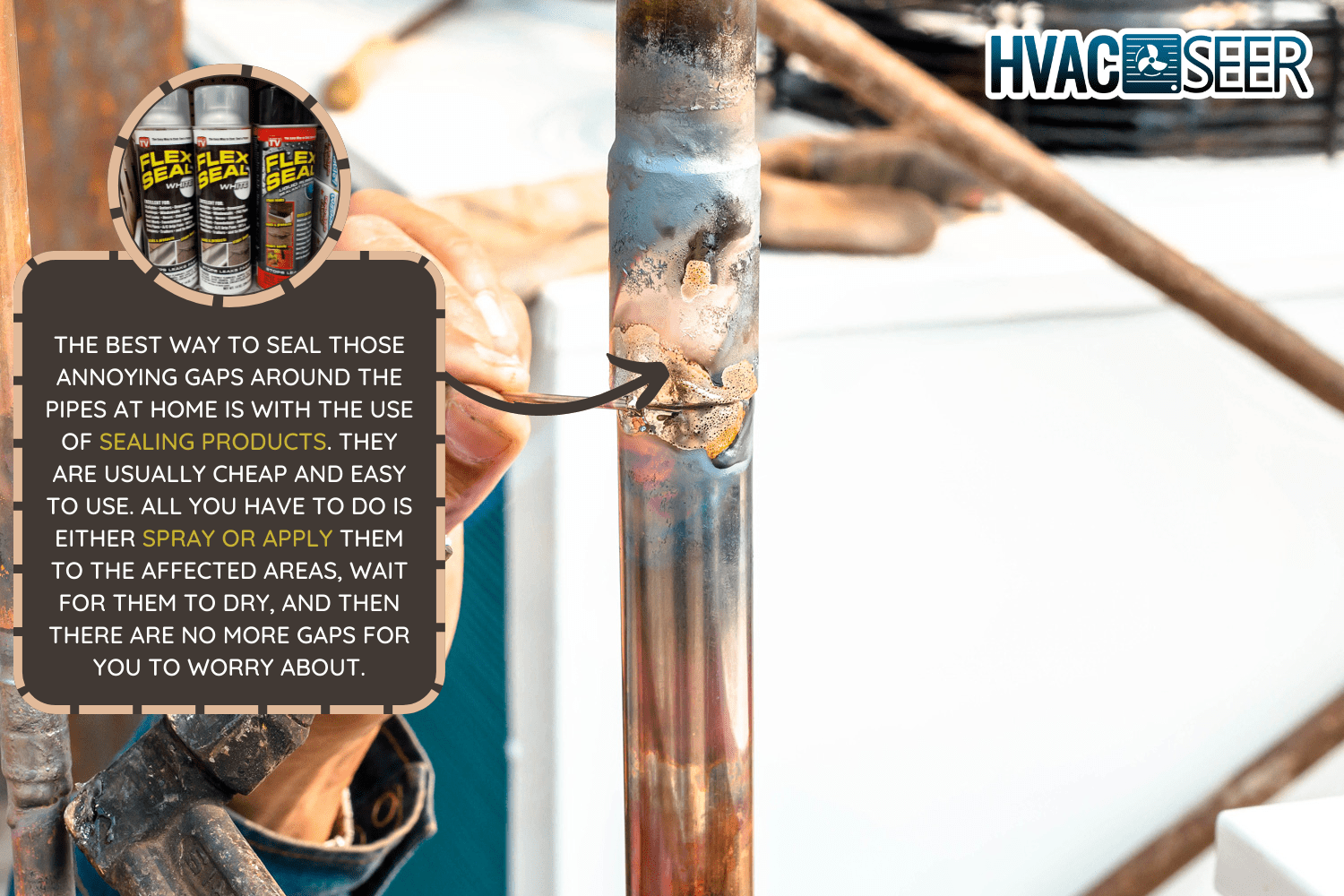
How To Seal Gaps Around Hot Water And Copper Pipes?
A small gap or leak can become a big problem in the future if unattended. Foreign materials, such as dust, dirt, and even insects, can easily make their way inside those pipes. Additionally, those gaps can lead to reduced efficiency in keeping your home warm as cold drafts can quickly enter through them.
In this section, we will talk about commonly used products used to seal those pesky gaps and leaks. All these products are pretty cheap and easy to obtain no matter where you are.
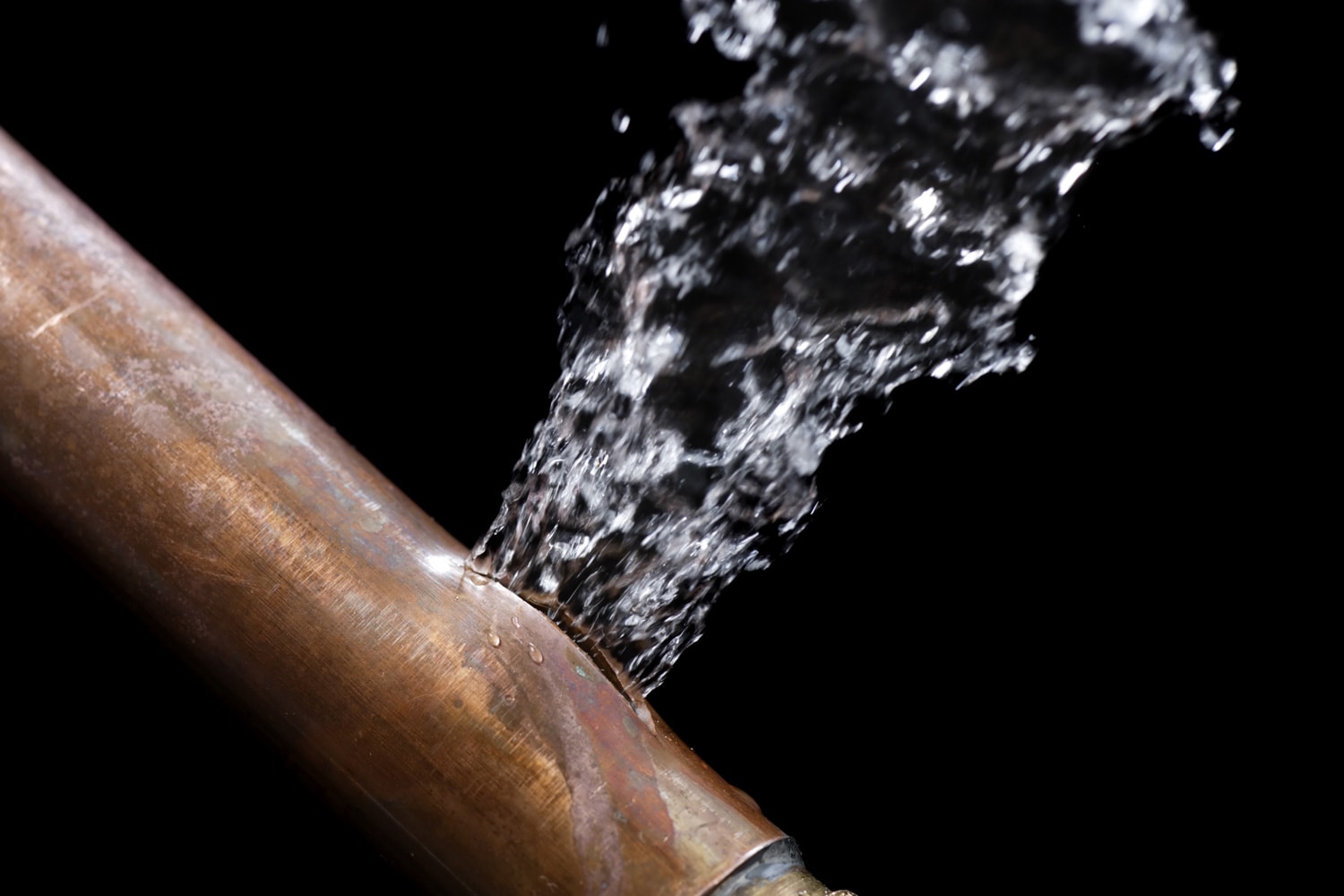
Flex Seal
Flex Seal is liquid rubber in a can. It's famous for its wide range of uses and for how incredibly simple and reliable it is. All you have to do is spray out the contents onto the affected area and wait for it to dry. Then, there are no more gaps or leaks for you to worry about. The product also claims it can handle extreme temperatures between -20 to 140 degrees Fahrenheit.
Not only that, you don't have to worry about it ruining the aesthetic of your home. You can simply paint over it once dried to match or complement its background.
If you're wondering whether Flex Seal can work on other surfaces, we included links that would answer that query. Below are some articles that show just how flexible this product is:
Does Flex Seal Liquid Work On Wood?
Does Flex Seal Liquid Work On Pools?
Check this Flex Seal on Amazon.
Expanding Foam
Also known as insulation foam to some people, this product works by spraying a combination of two chemicals to create foam that would stop and fill in the gap. While simple to use, you must also be aware of what kind of expanding foam you're using.
Make sure to always get the consumer-friendly expanding foam products. Stay away from products aimed toward professionals. Those need special equipment and prior training for efficient use.
Also, check the expiration date on the can when using one that's been lying around your home for quite some time. Usually, their efficiency drops when it's past the expiration date. And in some cases, it could result in an explosion due to the chemicals inside that are responsible for the creation of foam.
If you wish to learn more about expanding foam, we included these links below. They will provide you with more information regarding questions not answered here:
Does Expanding Foam Corrode Copper Pipes?
How Long Does Expanding Foam Take To Dry?
Check this expanding foam on Amazon.
Silicone Sealant
Consider using a silicone sealant if you're planning on caulking the gaps and leaks. According to professionals, this is the best product for the job, especially for home repairs such as leaky pipes.
However, they only work on gaps that are less than a quarter of an inch big. Additionally, these sealants vary regarding how strong their adhesiveness is. So, pick out the one that best suits your need.
Check this silicone sealant on Amazon.
Soldering A Leaky Copper Pipe, An Option?
If you wish for a more permanent solution, soldering is an option available to you. Soldering is a process where you take a metal that has a low melting point to use as filler to close a gap.
If you're planning on using this method, equip yourself with the necessary tools and safety garments. Failure to do so can lead to burns, electrical shocks, eye damage, and severed digits, among others. It can also lead to respiratory problems down the line due to the smoke and chemicals released when melting metal.
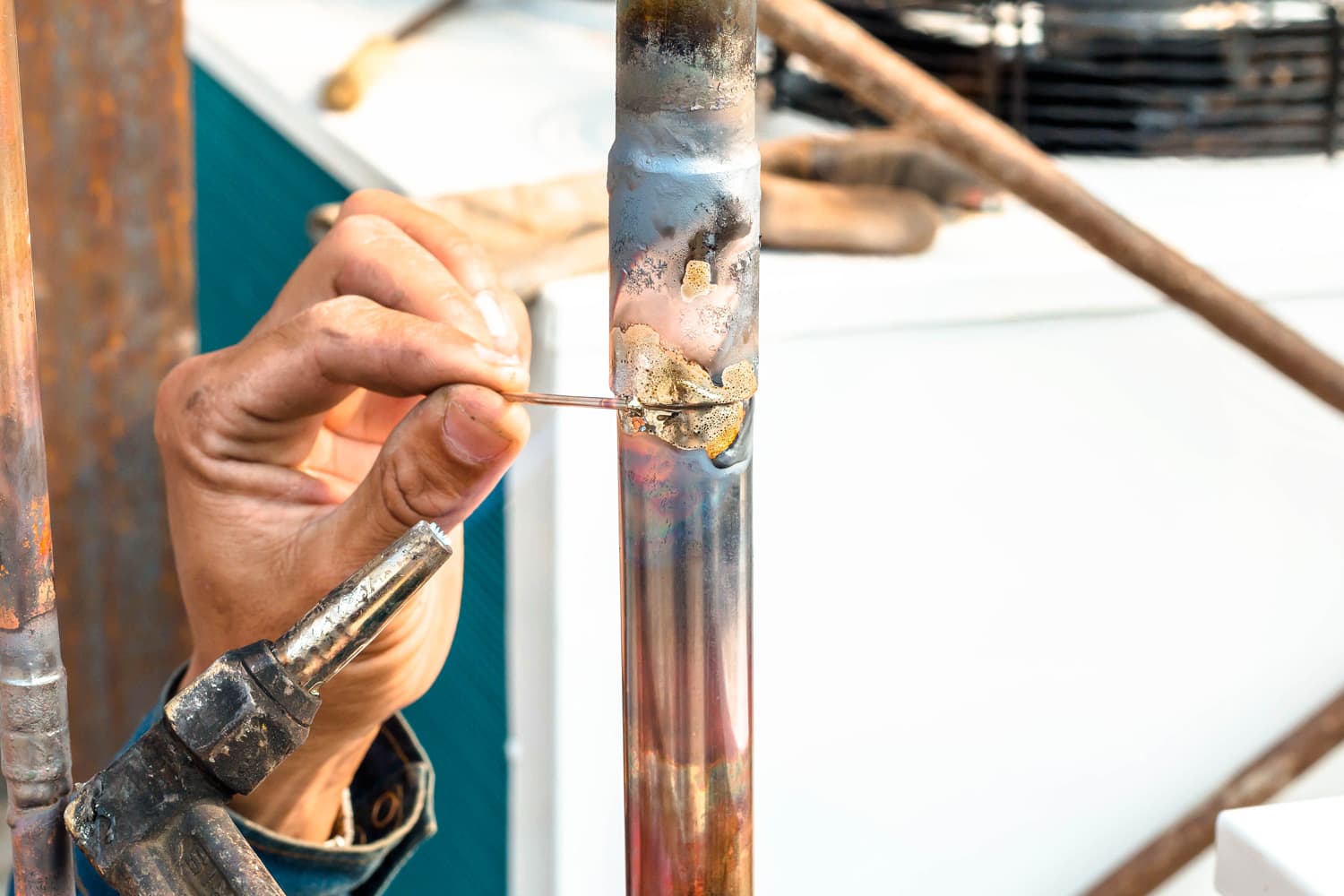
How To Solder A Leaky Copper Pipe?
The first thing you need to remember is to wear safety gear. That includes wearing heavy-duty gloves, boots, overall trousers, safety goggles, and a mask. Also, prepare a fire extinguisher and a flame protector cloth as well.
Then, make sure to drain the pipes of any liquid. This is to afford wasting time trying to evaporate any liquid leftover. Next, clean the area using a dry cloth. You can use sanding paper to grind away any corrosion in the affected area as well.
With a wet cloth, wrap it around parts of the pipe where you're not planning to solder. By doing this, you prevent those areas from melting under the heat of the soldering iron. It will essentially act as a barrier or a shield from the intense heat.
Then, apply a flux over the area you're planning to solder. This will help the metal alloy flow much more evenly and will prevent it from balling up.
For the next step, use a soldering iron or torch but be very careful. Heat the affected area until it starts melting. Then, apply the filler metal on top of it.
Next, heat it once again until all the parts start coming together. Let the affected area cool down for around five minutes before checking to see if there are any gaps. Test it out by turning the water on to see if there are any leaks.
If there is still, add more filler and repeat the process. Do this until there are no more leaks present. This should eventually stop the problem once and for all.
Are Copper Pipes Still The Best Choice?
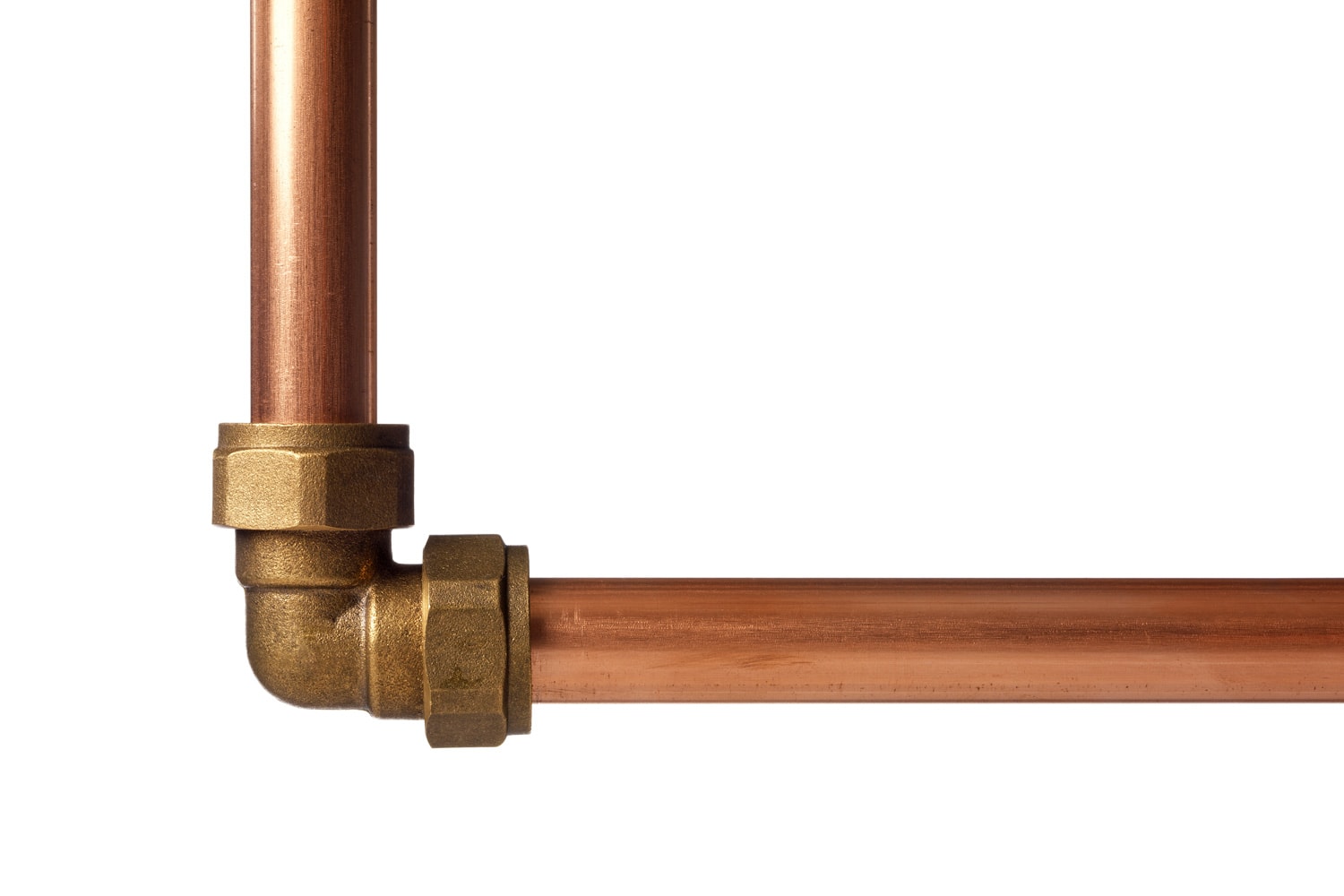
Copper pipes still see regular use due to their strength and durability. However, they don't see as much success as before. Plenty of alternatives have popped up in the market over recent years. But none had taken off like PEX pipes.
They have all the advantages of copper pipes with none of their glaring weaknesses. As such, more and more pipe systems are making the switch to this material.
Check these copper pipes on Amazon.
What's An Alternative To Copper Pipes?
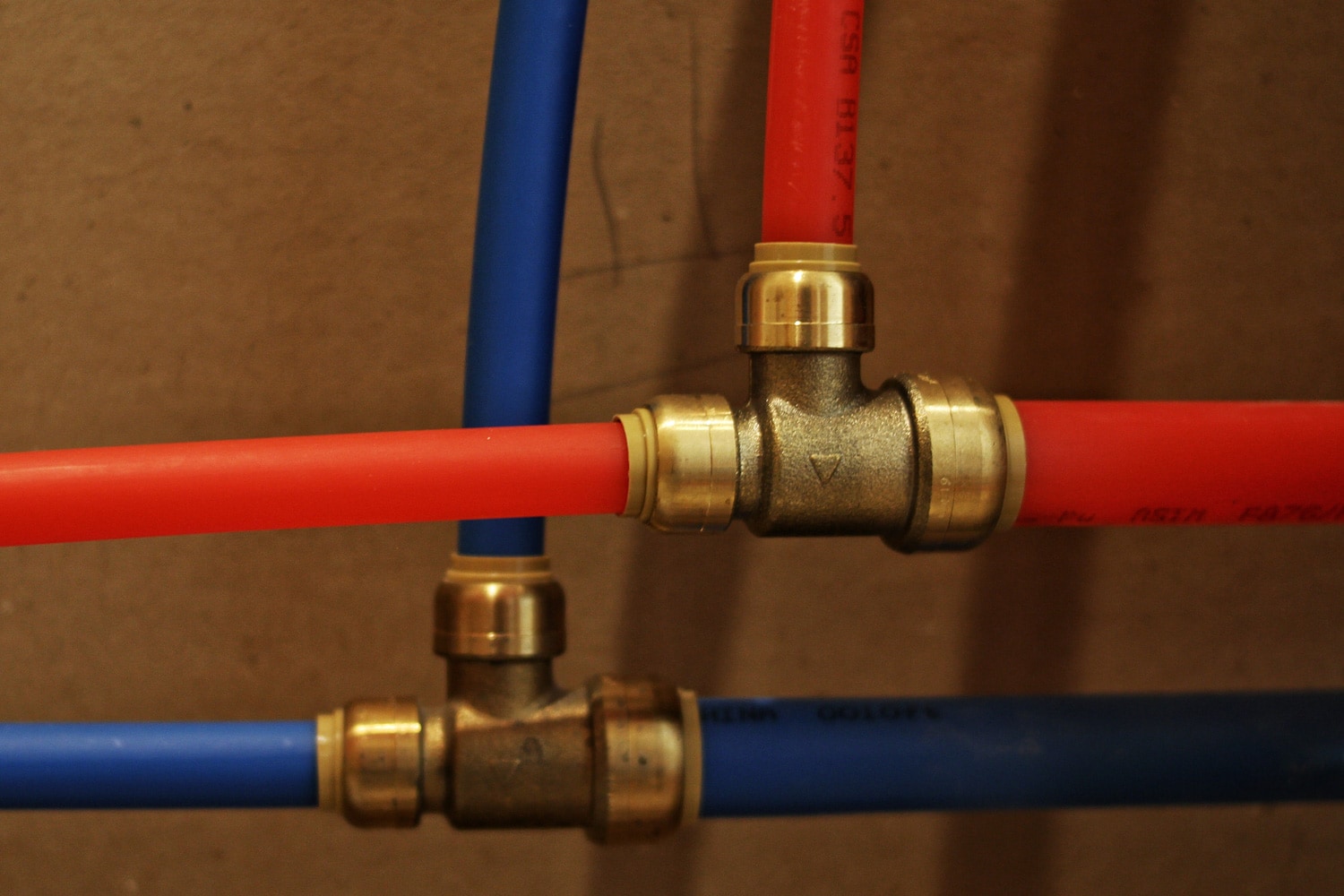
As of late, there has been a steady decline in usage when it comes to copper pipes. And that's because of its latest competitor on the market, cross-linked polyethylene tubing, or PEX for short.
These PEX pipes are just as strong and durable as copper pipes, even more so in some cases. Due to the nature of their material, PEX pipes can expand more than double their size, eight times more. This means that PEX pipes are less likely to burst, unlike their copper counterparts.
They can also handle freezing temperatures in the winter much better than copper pipes. They don't corrode nor allow sediment to build up within them because of their nature as plastic.
On top of that, they are much cheaper than the traditional copper pipe, costing 20 to 40 percent less. They are easy to install and work with, leading to less dangerous situations as opposed to copper pipes that require soldering.
They are equal, if not much better, than copper pipes. So if you wish to save money without giving up on the durability and quality of your pipe systems at home, then PEX pipes are an excellent choice.
We have included a link below that explains how to insulate PEX pipes. Consider giving it a read to find out more on the matter:
Check this PEX tubing pipe on Amazon.
Concluding Statement
To wrap it up, there are several ways to seal up gaps around hot water and copper pipes. Products such as Flex Seal, expanding foam, and silicone sealant work best in sealing. If you're looking for an alternative option, soldering is one way to go about it.
We have provided links below to articles that give information about insulation for copper pipes and pipes in general. So if you wish to know more, check these links and give them a read:





